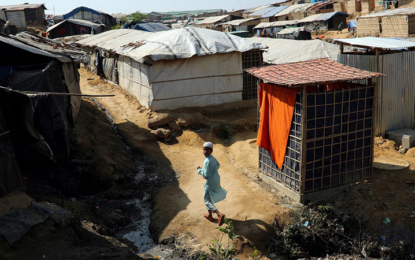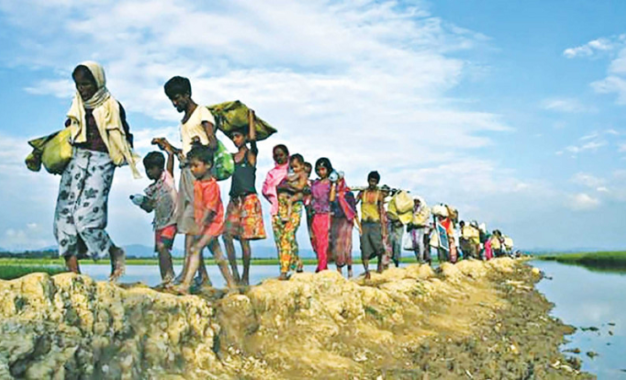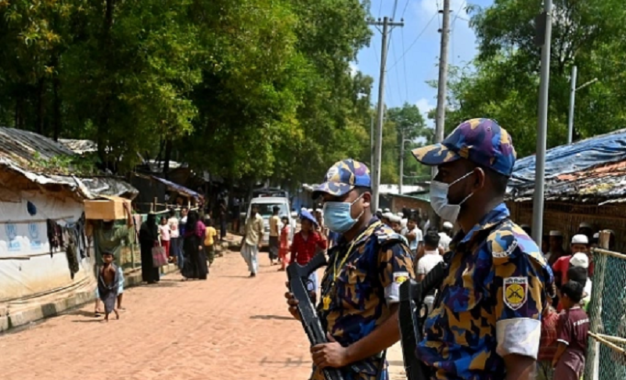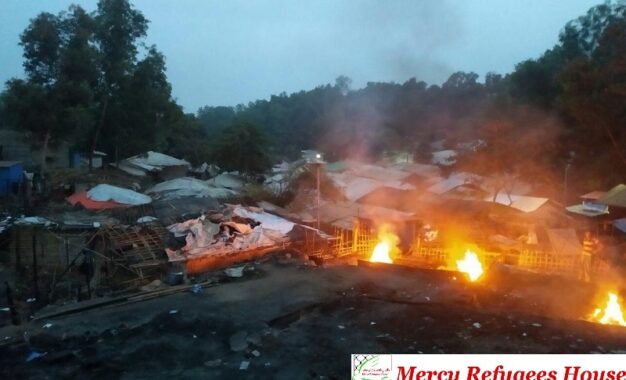Latest News
Rohingya refugees hope for better life as Bangladesh moves them to remote island
Bangladesh, Help Refugees, Human Rights, Refugees Issues, Religious Rights
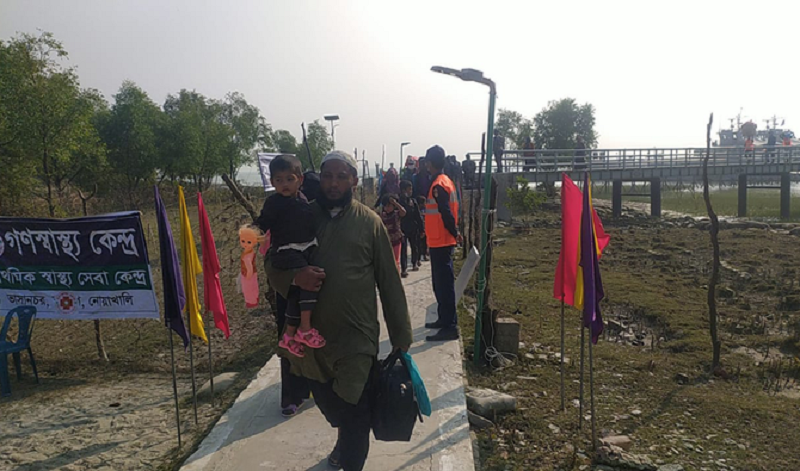
DHAKA: A second group of Rohingya refugees in Bangladesh were on Tuesday taken to an island in the Bay of Bengal to start new lives, despite UN concerns for their welfare.
The Bangladeshi navy provided transport for 1,804 Rohingya Muslim refugees — members of an ethnic and religious minority group who have fled violence and persecution in Myanmar — to the isolated Bhashan Char island from overcrowded makeshift camps in Cox’s Bazar.
They followed a first group of 1,642 relocated to the island, 30 km from the mainland, in early December.
Under the $370 million relocation project, the Bangladeshi government has built housing units and infrastructure on Bhashan Char for 100,000 Rohingyas to take pressure off the main refugee settlement in Cox’s Bazar that already hosts more than 1.1 million people.
ALSO READ THIS: ‘PRAY FLOODS DON’T KILL US’: THE ROHINGYA’S REMOTE BANGLADESH ISLAND
However, the UN Refugee Agency (UNHCR) said it had not been involved in the relocation operation and expressed concerns over the vulnerability of the island — which only emerged from the sea 20 years ago — to severe weather and flooding.
Mohammed Deen Islam, 35, one of those who arrived on the island on Tuesday, told Arab News: “We are being provided with living room in buildings made of concrete. Here we have far better accommodation facilities compared with the squalid camps at Cox’s Bazar. It’s a very beautiful place.
“Some of my relatives came here earlier at the first attempt of relocation. Seeing the facilities here, they invited me to come,” he said, adding that he had voluntarily applied for relocation with his wife and four children.
Another Rohingya refugee, Nurul Islam, 39, said his relatives who had moved to the island in the first group told him it offered better opportunities to earn a living.
Amazon Sponsorship
Recent Posts
Jul 29, 2023
It has been close to six years since hundreds of thousands of Rohingya faced a deadly genocide by Myanmar’s military and fled the country in search of protection and refuge in neighbouring Bangladesh. The Rohingya population has been undergoing persecution, discrimination, arbitrary arrests, and atrocities in Myanmar for over seven decades. Their condition is alarmingly […]


